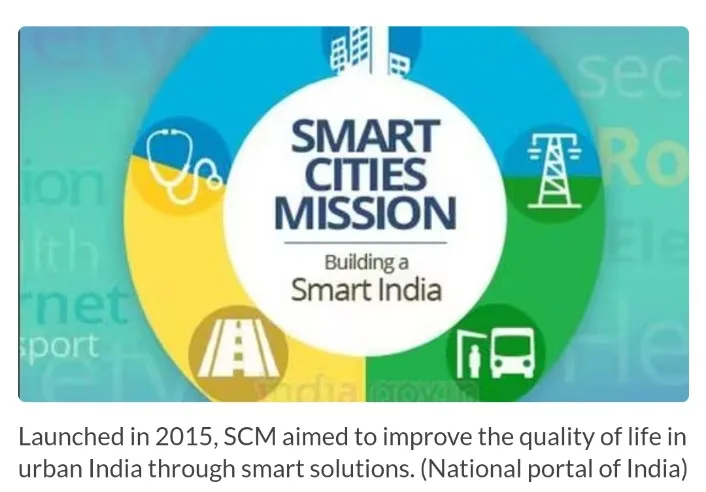In a report presented on Thursday, a parliamentary standing committee has proposed the extension of the Smart Cities Mission (SCM) into a second phase, with a particular emphasis on second-tier cities to alleviate congestion in state capitals. The committee recommended the continuation of special purpose vehicles (SPVs) created for the mission and urged the union ministry of housing and urban affairs (MoHUA) to provide ongoing support to cities in completing projects even after the SCM deadline concludes in June 2024.
The report, titled “Smart Cities Mission: An Evaluation,” highlighted that as of December 2023, out of 7,970 projects worth ₹1,70,400 crore initiated, 6,419 projects worth ₹1,25,105 crore have been completed, and 1,551 projects worth ₹45,295 crore are at the work order stage.
Despite notable progress, certain regions, including Lakshadweep, Daman and Diu, Puducherry, and Port Blair, received less than 50% of the pledged central funds. The report emphasized the need for robust governance structures and monitoring capacities for the SPVs and suggested the continuation of the infrastructure and digital assets created under SCM, with privacy safeguards in place.
While applauding the achievements of cities like Madurai, which completed 100% of projects by December 2023, the committee noted disparities in project completion across cities, with some lagging significantly, especially in the northeast, Union Territories, and hilly areas. To address this, the committee recommended a separate plan to ensure smaller cities benefit from the scheme.
The report raised concerns about the failure to raise funds through public-private partnerships (PPPs), with only 6% of SCM projects funded through this channel compared to the recommended 21%. The committee urged the government to analyze the reasons behind this shortfall and introduce remedial measures.
Additionally, the committee highlighted a departure from SCM guidelines, where the proposed 5% funding through loans fell short in most cities. It called for an assessment of the number of integrated command and control centers (ICCC) required in various cities, emphasizing the need for a comprehensive framework and operation and maintenance strategies.
The committee recommended a fixed tenure for CEOs of smart cities and increased involvement of elected representatives in governance structures, emphasizing regular state-level advisory forum meetings for effective collaboration.
The extension of the SCM into a second phase and addressing these recommendations could contribute to sustained urban development and improved quality of life in Indian cities.






